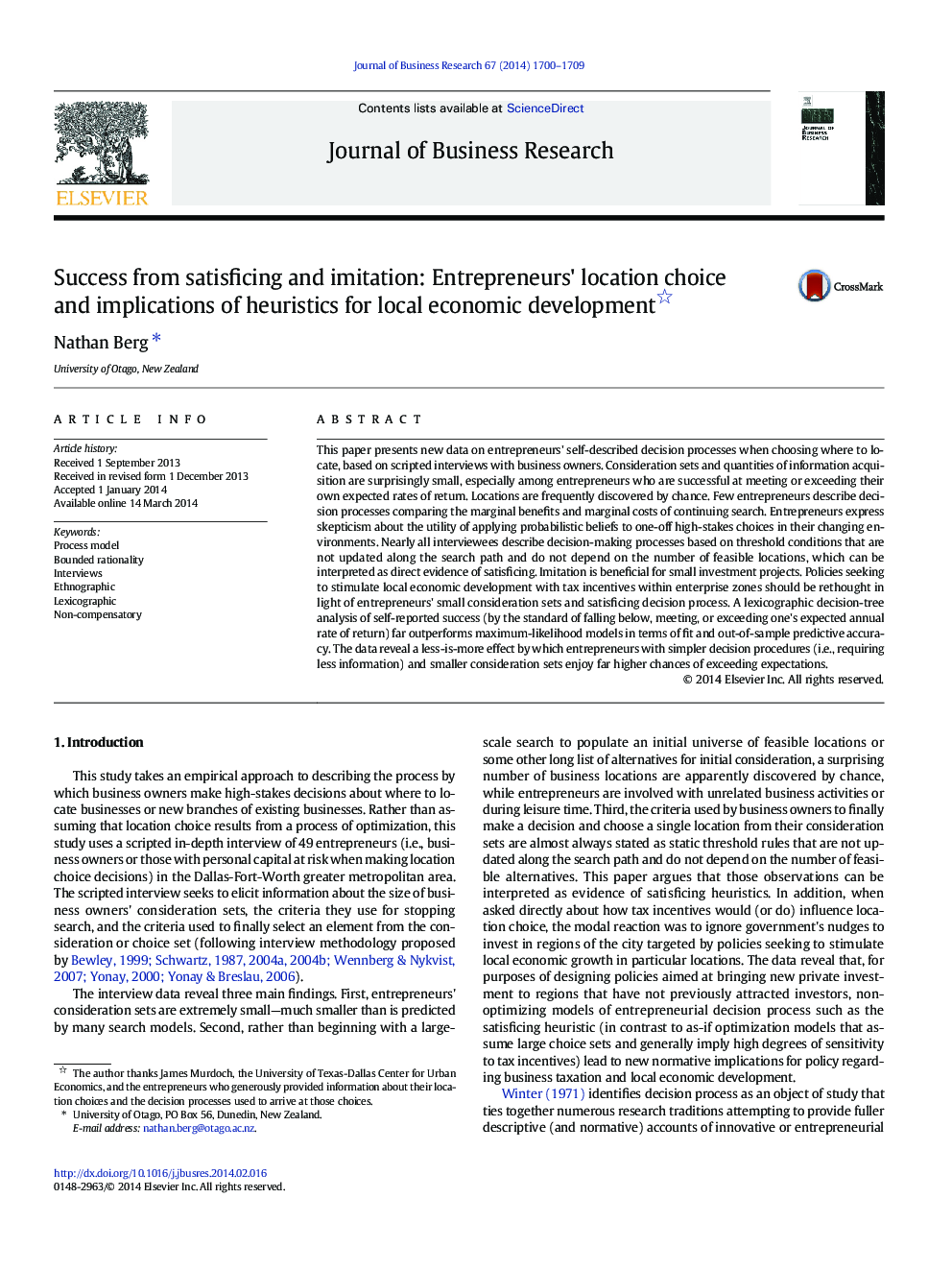| کد مقاله | کد نشریه | سال انتشار | مقاله انگلیسی | نسخه تمام متن |
|---|---|---|---|---|
| 1017626 | 940308 | 2014 | 10 صفحه PDF | دانلود رایگان |
This paper presents new data on entrepreneurs' self-described decision processes when choosing where to locate, based on scripted interviews with business owners. Consideration sets and quantities of information acquisition are surprisingly small, especially among entrepreneurs who are successful at meeting or exceeding their own expected rates of return. Locations are frequently discovered by chance. Few entrepreneurs describe decision processes comparing the marginal benefits and marginal costs of continuing search. Entrepreneurs express skepticism about the utility of applying probabilistic beliefs to one-off high-stakes choices in their changing environments. Nearly all interviewees describe decision-making processes based on threshold conditions that are not updated along the search path and do not depend on the number of feasible locations, which can be interpreted as direct evidence of satisficing. Imitation is beneficial for small investment projects. Policies seeking to stimulate local economic development with tax incentives within enterprise zones should be rethought in light of entrepreneurs' small consideration sets and satisficing decision process. A lexicographic decision-tree analysis of self-reported success (by the standard of falling below, meeting, or exceeding one's expected annual rate of return) far outperforms maximum-likelihood models in terms of fit and out-of-sample predictive accuracy. The data reveal a less-is-more effect by which entrepreneurs with simpler decision procedures (i.e., requiring less information) and smaller consideration sets enjoy far higher chances of exceeding expectations.
Journal: Journal of Business Research - Volume 67, Issue 8, August 2014, Pages 1700–1709
